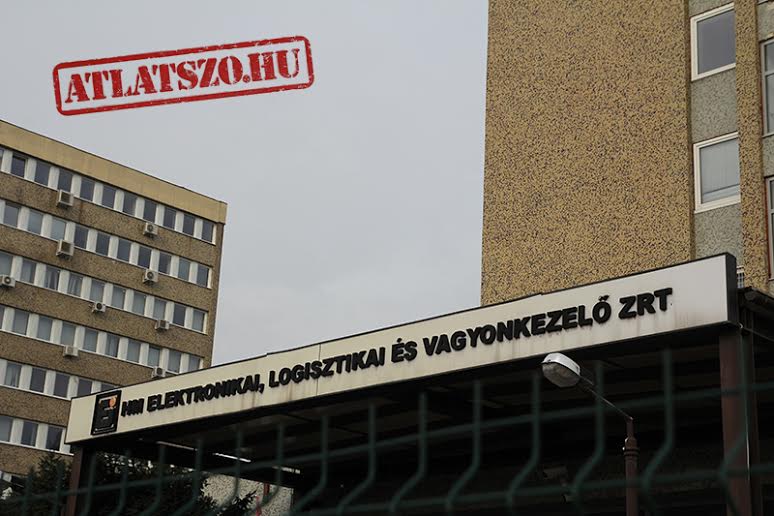The https://english.atlatszo.hu use cookies to track and profile customers such as action tags and pixel tracking on our website to assist our marketing. On our website we use technical, analytical, marketing and preference cookies. These are necessary for our site to work properly and to give us inforamation about how our site is used. See Cookies Policy
Ministry spends money freely, for the right contractor
For years now, Hungary’s Defense Ministry has been pouring money into a contracting company for a multiyear construction job, even though it has submitted bids with higher prices for items than would be found in an average DIY store. Multiple inquiries by Atlatszo.hu have finally prompted an investigation.
In 2011, Hungary’s Defense Ministry launched an investigation into contracts signed with several vendors and found extensive evidence of the misappropriation of funds between 2005 and 2010, to the value of some HUF 1.7 billion (€5.5 million). The biggest offender on the list was the ministry’s electronics and asset management firm HM EI Zrt, which commissioned several jobs to the value of HUF 596 million (€1.9million) during the period in question.

Even though the audit clearly identified wrongdoing and pointed towards criminal prosecution, no genuine efforts were made to find those responsible. It seems that HM EI continued its questionable practices when it came to the renovation of its Budapest HQ building, a venture started in 2010.
Atlatszo.hu has recently received official documents showing that HM EI has a preference for a certain Baurama, a construction company that has for years been charging excessively high prices for its refurbishment of the HM EI headquarters.
Our information request revealed that 18 out of 23 contracts under the project went to Baurama. The first was signed in September 2010, with the successful bidder having operated under a different name just three months prior; ProdeTex Kft was set up in 2001, with its main profile being the manufacture of clothing. It waited until the summer of 2010 to try its hand in the building industry. Apart from professional considerations, it did not have a particularly appealing business record, certainly nothing that would have warranted its selection for a costly publicly-funded job. ProdeTex Kft had concluded the previous year with a minimal loss from zero forint revenues.
After the first successful bid, Baurama continued its winning streak, underlined by the fact that it now has an official operating base inside the HM EI headquarters.
When we approached HM EI to review their contracts, our request was quickly approved by the firm’s chief executive, Lajos Móró. Of course, in this case ‘review’ meant an onsite skim through potentially thousands of pages of documentation, without permission to make copies or remove the papers from the premises, which obviously seriously hampered the depth of the review.
Nonetheless, we found several entries for parts of the overall building overhaul that were suspiciously expensive. For instance, the company offered to procure plastic sinks for a higher price than is currently found online. We found similar pricing for windowsills and flooring tiles, which Baurama all delivered for higher than retail prices, even though a major builder would normally be able to negotiate much more favourable prices.
There were also cases when the work described in the documentation was not performed in reality. For example, installing new tiles in parts of the building, where the walls were only partially covered rather than fully, as laid out in the contracts. something we saw for ourselves. When we asked the project’s technical coordinator about the discrepancy, he couldn’t give an answer even though he was a member of the committee which approved that the works had been completed in line with the documented arrangements.
When we asked CEO Móró about the matter, he admitted that there may be corruption, but added that he trusted his associates. Nonetheless, he ordered an investigation of the HQ project while highlighting that HM EI’s processes are regulated by a rigorous quality assurance (QA) regime.
A look into the QA services provider in question led to an even more peculiar arrangement. HM EI is paying an annual HUF 67.8 million (€219,000) to a contractor, DSQ Contact Kft to provide the necessary corporate management and assurance services.
The owner of the company is László Szűcs, who also happens to be the owner of Baurama – and coincidently, both companies appeared out of nowhere in 2010.
Baurama won its contracts through competitive tendering process, raising questions of how it could have won the contracts fairly, given its uncompetitive pricing. It turns out that in their bids the competing organisations also listed prices for items that were well above the normal market price. More than that, some entries were preposterously expensive, almost as if they were deliberately inflated to make Baurama’s already overpriced package the best of the bunch.
Based on the Hungarian article by András Becker

